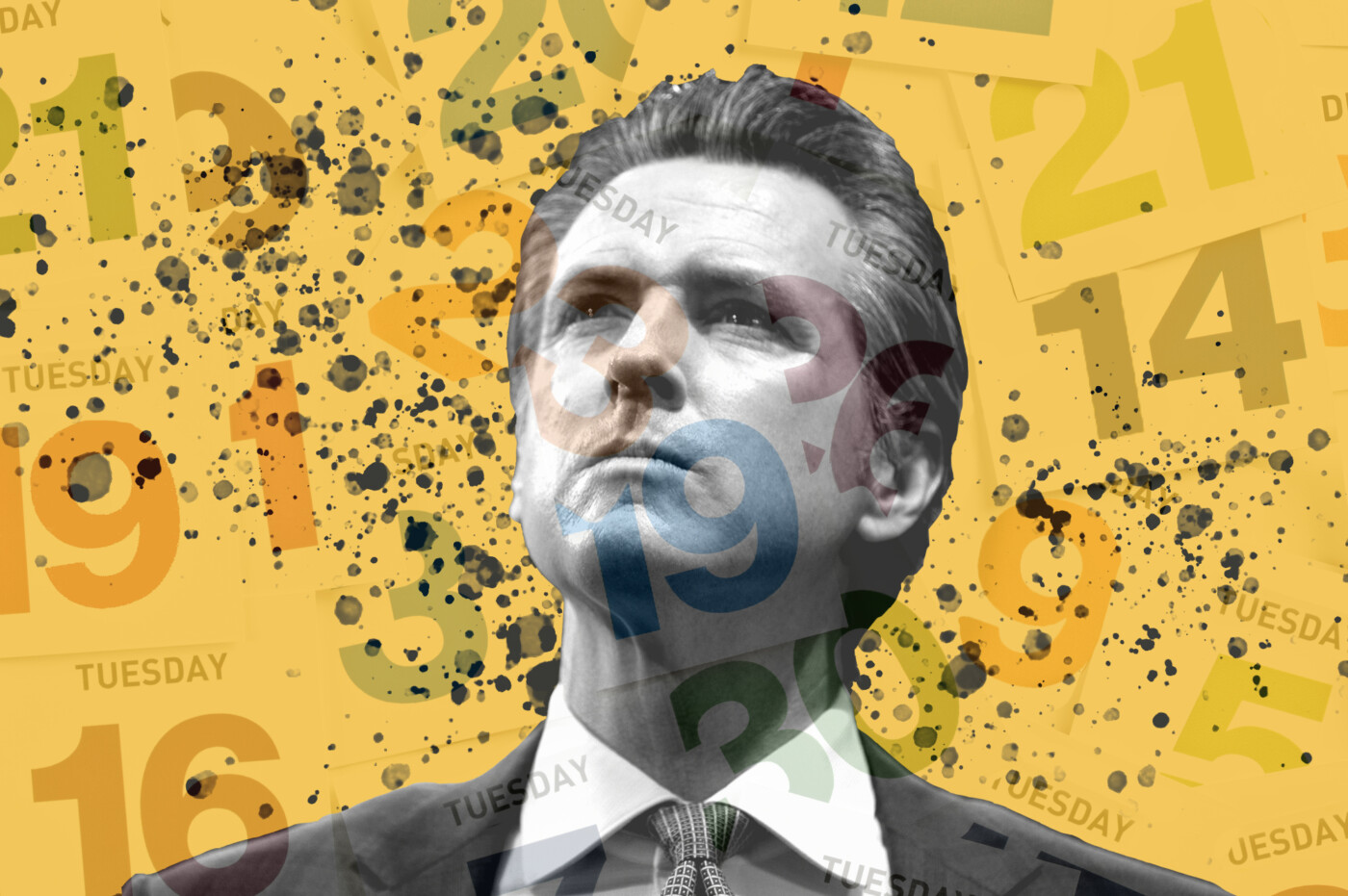Californians will almost certainly vote this year whether to throw Gov. Gavin Newsom out of office. But when?
There’s surprisingly little certainty about the date of an election that has the potential to upend the leadership of the world’s fifth largest economy and disrupt the lock Democrats have had on the state Capitol for the last 11 years.
The range of probable dates is shaping up as a Tuesday between mid-September and early November — with signs pointing to the likelihood of an election sooner rather than later.
One reason for the confusion is because the procedure leading up to a recall election involves a few steps that could take as much as three months or as little as a few days, depending on how the officials involved decide to roll things out.
“These processes that are remaining now are totally in the hands of Democrats. If they want to truncate it, they can truncate it. And in my estimation they should,” said Garry South, a Democratic political consultant who managed campaigns for Gray Davis, the only California governor to be recalled.
“Let’s get this thing over with.”
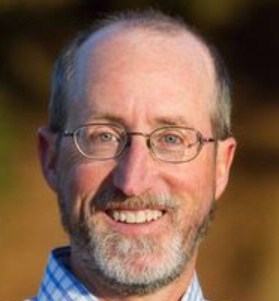
Senate Elections Committee chairperson Steve Glazer suggested the election should be held as soon as August because Newsom is doing well in the polls as the state rebounds from the COVID-19 pandemic. But it seems more likely that officials would wait until after Labor Day, when summertime distractions settle down. And recent activity at the Capitol indicates that the election will probably be called earlier than the traditional first Tuesday in November.
State finance officials and lawmakers who control the budget have already begun figuring out how much it will cost counties to conduct the election — a step they could drag into August if they wanted. Last week, the Department of Finance received cost estimates from election officials in almost all of California’s 58 counties. And Sen. Nancy Skinner, the Berkeley Democrat who leads the Senate’s budget committee, told reporters that she may not need the full 30 days the law gives her panel to review recall election costs because “we already know” the price tag.
County election officials said last month that putting on the recall election will cost them about $400 million, five times more than what Newsom had estimated. Similar to last November, all registered voters will receive mail ballots and counties can also offer drop-off and in-person voting.
If lawmakers include the funding for counties in the budget they’ll pass by June 15 — which seems likely, since they’ve received the cost estimate and have a massive surplus — it could be a major indication that the election will probably be in September instead of later in the fall.
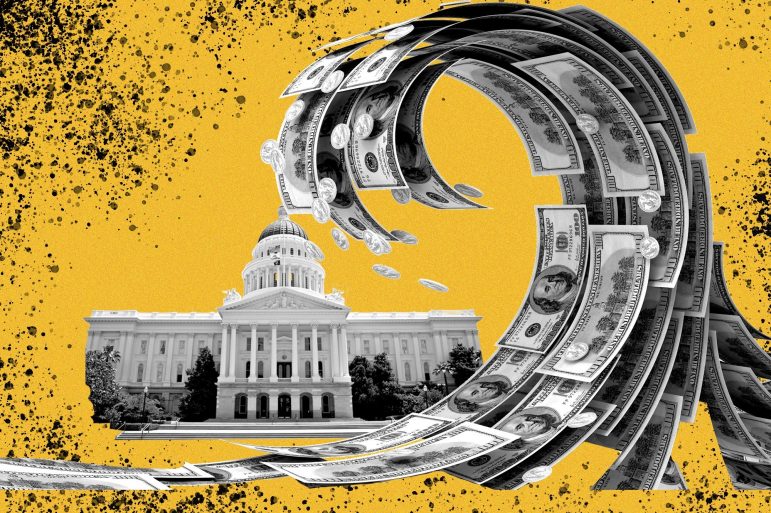
But if the funding is not included in the budget, it means lawmakers and Newsom’s finance officials could spend more of the summer analyzing the costs, thus delaying a vote. The recall law gives them lots of leeway — finance officials and the Legislature each get as long as 30 days for this phase of the process.
Democratic lawmakers added more steps to California’s recall process in 2017 as they unsuccessfully tried to fend off the recall of Democratic state Sen. Josh Newman of Fullerton. In addition to adding two months for the fiscal analyses, they also added six weeks for voters who signed the recall petition to remove their signatures if they want, a period that in Newsom’s case ends Tuesday.
“A lot of lag was put in,” said Joshua Spivak, a fellow at the Hugh L. Carey Institute for Government Reform at Wagner College in New York who lives in the Bay Area and writes the Recall Elections Blog.
“It’s this change in the law that has given some uncertainty to the proceedings.”
Newsom has answered questions about when he’d like the election to be held by saying it’s not his decision, and he’ll work hard to defeat the recall by focusing on getting Californians vaccinated and rebooting the economy. While he’s been touting a return to “business as usual” when the state reopens on June 15, Newsom said Friday that he will not lift the official state of emergency on that date. The emergency status allows the state to waive certain rules and expedite federal funding even as businesses more fully reopen.
“This disease has not been extinguished,” Newsom said after drawing the first winners in his vaccine lottery. “It’s not taking the summer months off.”
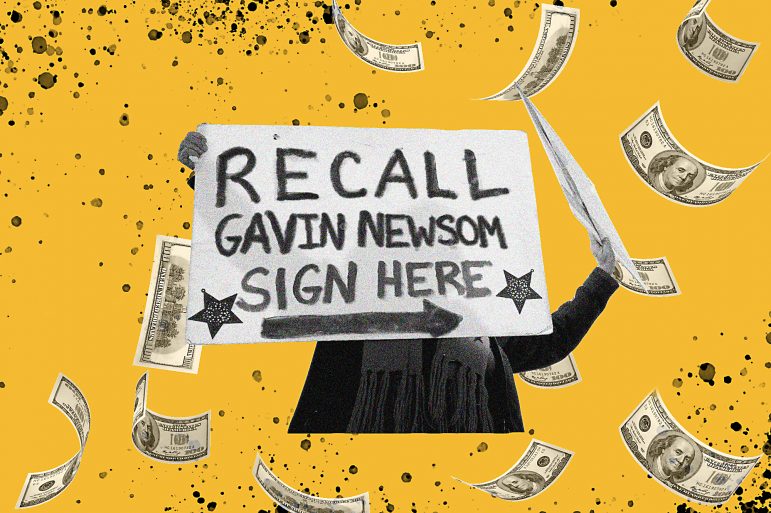
His opponents who are campaigning for the recall jumped on that comment, saying it will add fuel to their movement, which began as a conservative critique of Newsom’s liberal policies but evolved to encompass voters frustrated with his pandemic-induced restrictions.
“That seals the coffin,” Anne Dunsmore, a recall campaign manager, said of Newsom’s decision to hold onto his emergency powers. “People don’t feel that he understands the pain they’ve been through.”
Dunsmore said an election later in the fall is slightly better for recall supporters because it gives more time for candidates to jump in the race, which could attract more voters. It also allows more opportunity for Newsom to anger voters by his response to potential disasters — think wildfire, drought and power shut-offs — or his own gaffes, like the French Laundry dinner party that spiked support for the recall.
“The timing is more of an issue for him than it is for us,” Dunsmore said.
Opinions vary on whether holding the election sooner is better for Newsom — or even if the date of the recall matters much. There’s not really a playbook since only two governors in modern American history have faced a recall — Davis, who was booted from office in 2003, and Wisconsin’s former Republican Gov. Scott Walker, who defeated a recall in 2012.
Spivak believes that Newsom would benefit if the election is held later, arguing that sufficient time to raise campaign funds helped Walker win. Newsom is already outraising recall supporters, who raised and spent most of their cash to collect signatures, and he seems poised to dominate the money race.
“The longer he has, the more he can put that money to use and overwhelm the opposition,” Spivak said. “The air war hasn’t started and when it does, he might have a big advantage.”
Also, holding the election in early November could help Newsom by driving turnout, since voters are accustomed to voting then. On the other hand, Spivak said, holding it at an unusual date could help Newsom win more support by emphasizing that it’s an irregular election and an extra cost to taxpayers.
South says that Newsom would be better off if the election were sooner — before he faces the intense period of signing and vetoing bills from Sept. 11 to Oct. 11. His decisions could anger some voters. And an election scheduled soon after could cause more scrutiny of whether it is influencing how Newsom evaluates bills involving a range of powerful interests.
“That was a huge mess for us in 2003,” South said, because Davis faced a recall on Oct. 7.
“Watching him go over those bills with his reading glasses on, the whole room hung heavy with the specter of the recall.”
Ultimately, South said, it prompted Davis to sign legislation he’d previously vetoed, and veto some bills he otherwise wouldn’t. For instance, just before the recall, Davis signed a bill to give driver’s licenses to undocumented immigrants — something he had vetoed twice before, South said. The vetoes had cost Davis the endorsement of the Legislature’s powerful Latino Caucus in an earlier election, and he didn’t want to risk that again during the recall.
“Even if Newsom looked at all those thousand bills and vetoed and signed them all in good faith — he will be accused by both the right and the left of playing politics,” South said.
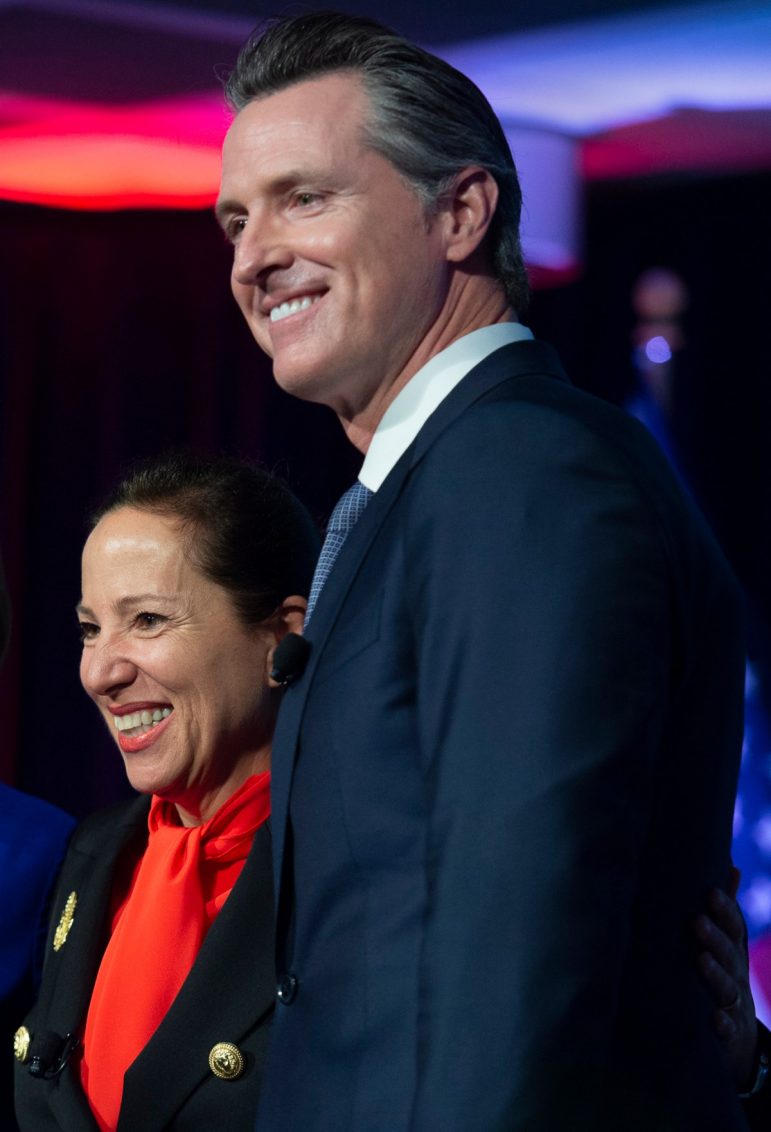
The decision on the election date falls to Lt. Gov. Eleni Kounalakis, a Democrat and Newsom ally. The recall law says she must call the election for between 60 and 80 days after Secretary of State Shirley Weber — who was appointed by Newsom — certifies that enough people have signed the recall petition to trigger an election, which follows the Legislature’s cost analysis.
“Frankly, it will probably be somewhere in the middle,” Kounalakis said in an interview. “It is my job to set this date within that narrow window, in a way that serves the public interest, and that is what I will do.”
One thing Kounalakis said she won’t do? Follow in the footsteps of Cruz Bustamante, who held her position when Davis was recalled and decided to run right after calling the election.
“I’m absolutely not going to put my name on the recall ballot,” she said.
